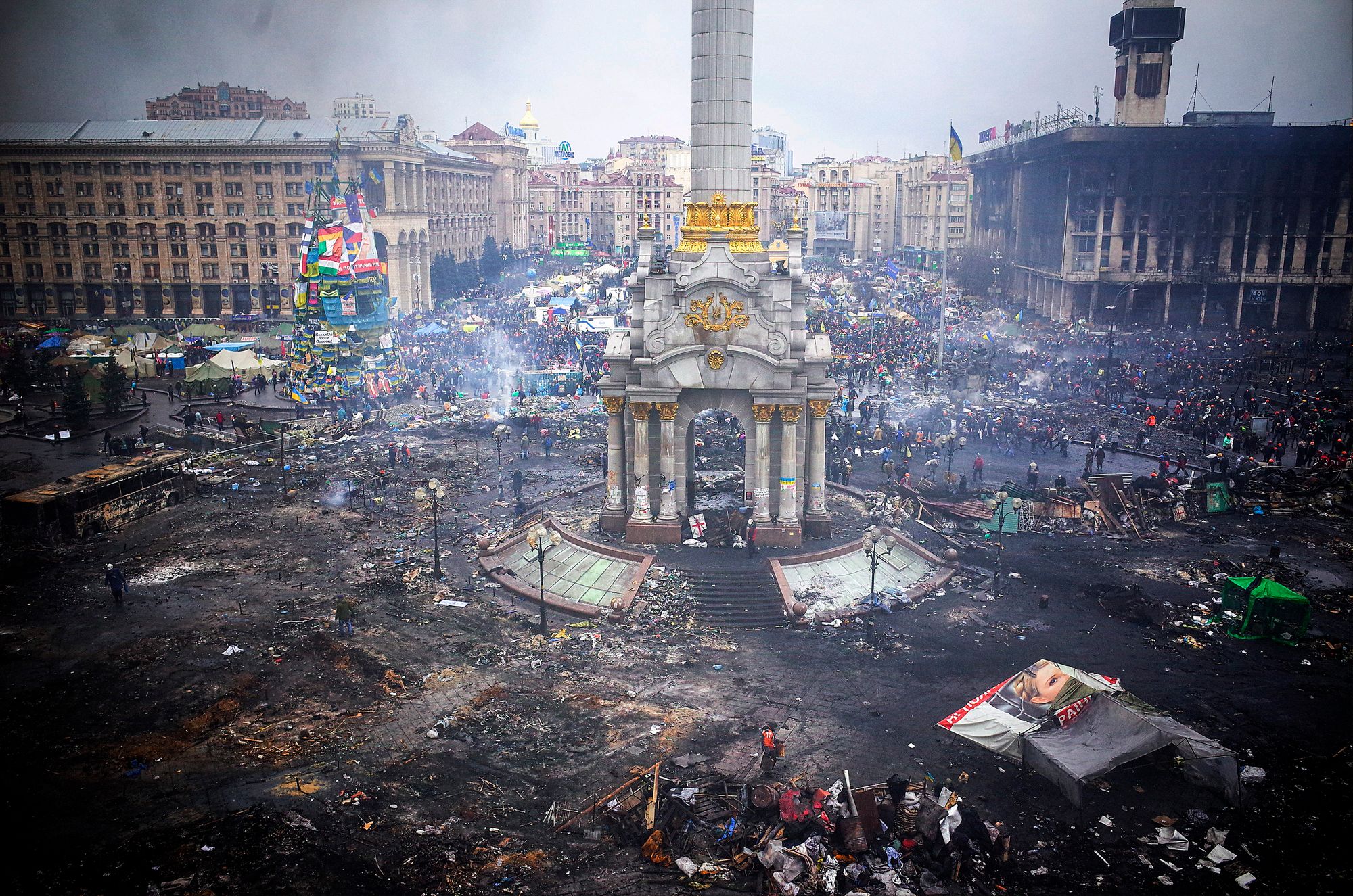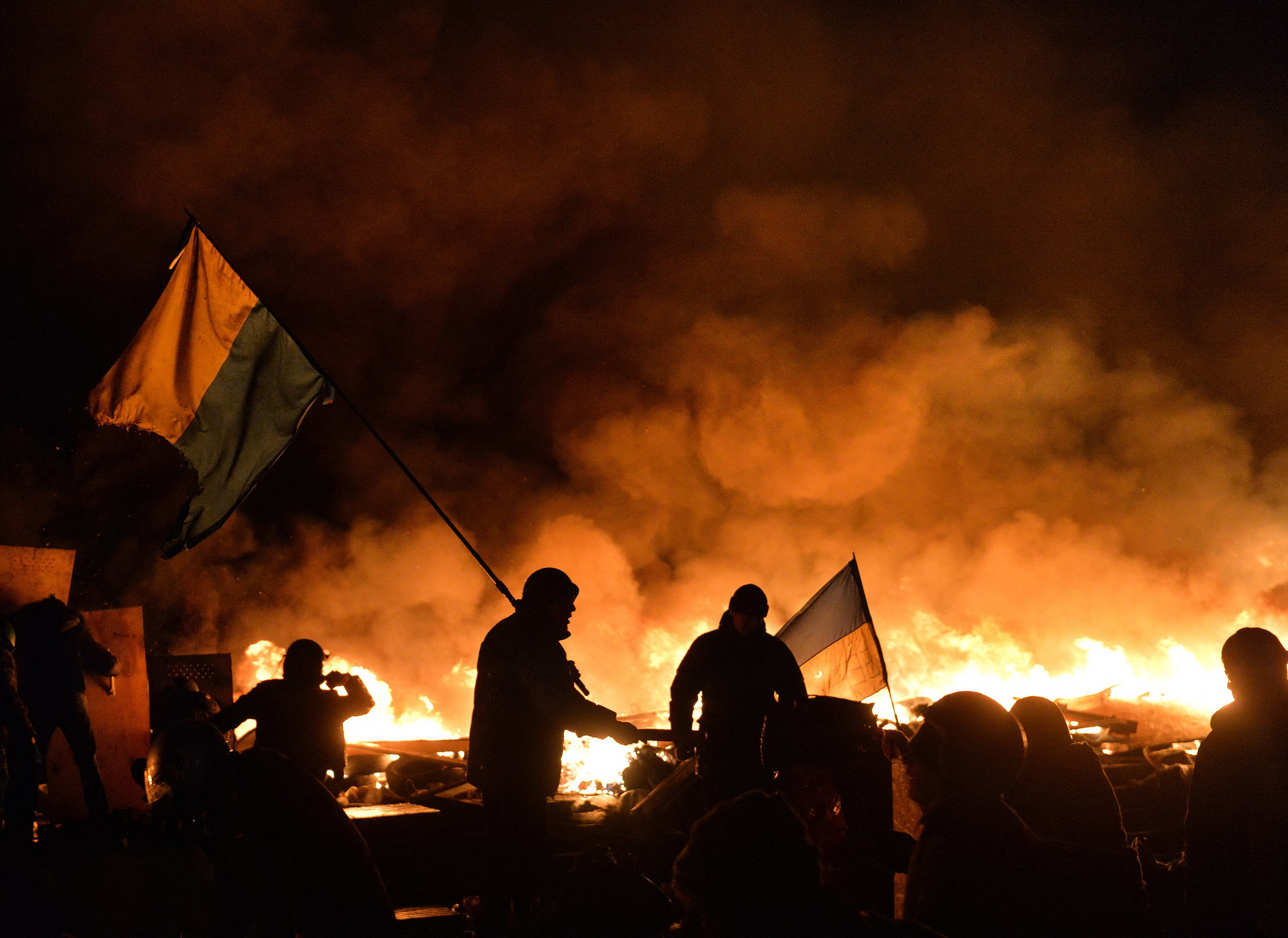The State Investigation Bureau said on June 19 that it had charged two police officers in absentia with murdering protesters on Feb. 20, 2014 during the EuroMaidan Revolution.
The suspects were the first to fire shots at EuroMaidan protesters on Feb. 20, 2014, according to the investigation. As a result of the Feb. 20 murders, 48 protesters were killed, and 90 others were injured.
One of them is a former commander of the Berkut riot police unit in the city of Sevastopol, while the other one is a police officer from that unit, the bureau said.
The bureau did not reveal the suspects' names. According to Ukrainska Pravda's undisclosed sources, the commander is Serhiy Kolbin, and his subordinate is Volodymyr Sukhodolsky.
Kolbin and Sukhodolsky, in coordination with the Kyiv Berkut unit, began shooting at protesters on Instytutska Street at around 9 a.m. local time on Feb. 20, 2014, according to investigators.
They used Fort 500 shotguns to kill three people, and three others suffered gunshot wounds, the State Investigation Bureau said.
"Their shots became an impetus to continue premeditated murders of protesters," the statement read.
The suspects later fled to Sevastopol, where they participated in Russia's illegal annexation of Ukraine's Crimea peninsula, according to the investigation.
Kolbin and Sukhodolsky face a sentence of ten to fifteen years in prison or life imprisonment.
The revolution began in November 2013 when people gathered on Maidan Nezalezhnosti, Kyiv's central square, to protest pro-Kremlin President Viktor Yanukovych's refusal to sign the long-awaited Association Agreement with the European Union.
Law enforcement officers, namely Berkut riot police, used violence to suppress the protests, including lethal force. Dozens of people were killed during the revolution, which culminated in Yanukovych fleeing to Russia.
On the morning of Feb. 20, 2014, Ivan Bubenchyk, who calls himself a genuine protester but has been accused of being a provocateur, started shooting at Berkut officers on Maidan Nezalezhnosti.
The officers began retreating as dozens of EuroMaidan activists chased them up Instytutska Street. Police started shooting at unarmed activists, killing at least 48 protesters on Instytutska Street. At least four police officers were also killed.
On Oct. 18, 2023, Kyiv's Svyatoshynsky District Court issued a verdict in the Feb. 20, 2014 murder trial.
One of the five defendants was acquitted. The others won't see jail either: one of them was released, and the other three were sentenced to prison in absentia and are hiding in Russia.
Lawyers of the victims and other critics have criticized the verdict, saying that justice was denied in the case.
The verdict follows years of what critics say was sabotage of the EuroMaidan cases by the Ukrainian authorities and law enforcement agencies.
Ukrainian law enforcement agencies have also investigated whether Russia could have played a role in suppressing the EuroMaidan protests and provoking violence. Experts say that Russia has made efforts to destroy EuroMaidan cases and hide its potential role.
In May the State Investigation Bureau charged Alexander Bortnikov, the head of Russia's Federal Security Service (FSB), and another 20 top officials of Russian special services with aiding the illegal obstruction of protests during the EuroMaidan Revolution.














